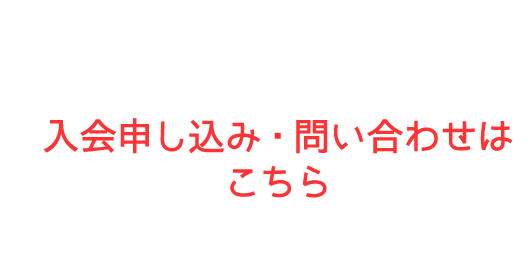いま伝えたい――久保 美津子さん
くぼ みつこ ・ 16歳の時に広島で被ばく
| ・音声で聞く (Youtube) |
・文章のダウンロード (日本語・PDF) |
・英文のダウンロード (English・PDF) |
ABCCには、私の血はやらない
/ 核兵器なくそう女性のつどいで被爆証言(2005年・広島)
「私の血を、私があげたくないと言っているのになぜいけないのです」。
緊張で青くなっている顔を意識しながら、私は乾いた声で言った。すると、「アナタ、コトワルノ。ソンナコトイッテイイノデスカ? グンポウカイギニマワシマスヨ」。
鼻にかかったカタコトノ日本語が、その人の口から吐かれた。明らかにアメリカ 2世とわかるその人は、ふちなしの六角形のメガネをかけ、占領軍という虎の威を借りて、私の前に立ちふさがっている。
そこは 原子爆弾で足、や手、頭を焼かれて2年。やっと見つけた私の仕事場、小さな新聞社の事務室である。18歳の私が必死で抗議をしているのに、そばにいる大人たちは黙りこくっている。
―下手に口を出すと、自分も軍法会議に回されるかもしれない。
―血を少しやれば、アメリカさんも気がスむことじゃないか。 戦争に負けたんだから仕方がないよ。
彼らはそういう気持ちだったのだろう。
私はありったけの知恵を絞っ、この不条理な仕組みから逃れる術(すべ)を考えたが、「軍法会議」の4文字は大きくのしかかり、払いのける方策はなかった。
あくる日、私はABCC(原爆傷害調査委員会)から迎えに来るというジープをすっぽかして、一人悲壮な気持ちで、日赤病院の門をくぐった。当時昭和22年は、 ABCCは日赤病院の2階にあった。原爆で焼けただれた階段を上って、氏名を告げると、待ち構えていた日本人の通訳が出てきて、私をアメリカ軍医の前に連れて行った。権力に負けた悔しさから、私は声を出して泣いていた。 しかしそこでも精一杯の勇気を振るって通訳に言ってみた。
「私の血を私がやらないということがなぜ通らないのですか」。
彼は「日本は戦争に負けたんです。負けたんだから仕方がないんですよ」。
通訳の言葉は私を納得させるというよりか、自分自身に言って聞かせているようであった。私はこの年配の通訳の言葉を聞きながら、「戦争に負けるということは、こんな小さな正義も通せなくなるということなんだ」と、胸いっぱいにその理不尽さに対する悔しい思いを広げていった。
このような中で私のデータは取られた。あきらめと捨て鉢な気持ちでアメリカ軍の診察を受けると、私は外へ出た。照りつける昭和22年、1947年の白い夏の陽の中で、私は屈辱と孤独をいやというほど味わっていた。
当時、焼け野原の広島には、働きたくても仕事はなかった。しかし診療所に働く母と、上半身を大やけどで死にかかっている弟と、3人は生きていく道を見つけなければならなかった。八部通り倒壊している家を片づけ、屋根に瓦を並べるのも私の仕事だったし、田舎の親類を頼って、米やいもを買い出しに行くのも私だった。だから ABCC から二世が迎えに来るまでは、食べることだけに追われていた。しかしあの出来事があってからは私も被爆のことを真剣に考え始めた。
「いくら戦争に負けたからといって、自分のものを自分がやらないと主張することぐらいできてもいいのじゃないか。いや、しなくてはいけない」「医学のために貢献するということで考えても、私たちのデータが本当に平和のために使われるかどうか」など。
だから、曲がりなりにも18歳の私が「ABCCに血をやりたくない」と感覚的にとらえ、それを行動にあらわしたことは、理不尽なものに対しては反対をするという具体的な行動だったと今でも誇らしく思っている。
二年に一度、現在でもABCCからは「お迎え」がくる。いっぺんだけ無理やりにとられたデータがABCCのカードケースのなかで分類され、残っているからである。
あの時と変わっていることは、「お迎え」さんはインギンであり、純粋な日本人であるということだけだ。迎えが来るたびに、私は17年前の「二世のお迎えさん」のオハナシをして、ABCCに行くことを拒否することにしている。今の職場の人も「行ってきなさいよ。ちょっと血をやればいいんだから」と言ってくれる。
しかし、私は今では血液の10㏄の問題ではないと思っている。原水爆禁止と日本の平和の問題、世界の平和とつながりにおいて、自分自身の日常の具体的な行動を考えねばならないと思っているからだ。
ABCCがどんなに設備をよくし、迎えに来る人がどんなに丁寧であったとしても、実際には被爆者はモルモットにされただけで、治療は一切されていない。それどころかアメリカはこのデータを次の戦争のための資料として利用しようとしていると聞く。
世界の平和とは逆の方向へのデータの利用がある限り、私はABCCにはもう一滴の血もやってはならないと心に決め、あの屈辱の時をかみしめている。
(1964年第1集より)
【英訳/English】
I Refuse To Give My Blood To The A.B.C.C
By Mitsuko Kubo ( penneme : Chikako Hayami )
“I say I refuse to give you my blood-my own blood. Why do you blame me for it?” I say in a dry voice, conscious that my face is pale with strain.
“You shall not refuse! You shall be court-martialed”
He spoke in broken Japanese somewhat through the nose. The American-born Japanese wearing six-angled rimless glasses is standing before me, threatening me, it seemed to me, like an ass in a lion’s skin.
We are in a small newspaper office-my place of work which I managed to find two years after I had my feet, hands and head burned by the Atom Bomb.
While I-an eighteen-year-old girl-am protesting with all my might against the G.I’s threats desperately, the grown-ups around us keep silent.
Probably they said in their minds: “If we put in a word, we will be court-martialed That G.I., will be satisfied if she will only give him a little blood. We can’t help it. America is a victorious country”
I tried hard to think of a way to get out of this unreasonable difficulty, but the words “court-martial” bore down heavily on me. I could not find the way.
The next day I left home unwillingly without waiting till the jeep arrived which was to come for me. I entered the Red Cross Hospital through the gate with no one to accompany me. (In 1947 A.B.C.C. was in the Reb Cross Hospital.)
I went up the stairs which had been burnt by the atomic bomb. At the reception office! mentioned my name. The interpreter who had been impatiently waiting for me to arrive appeared and showed me to the army surgeon. I was crying aloud, regretting having yielded to power.
I dared to say to the interpreter. “Why is it that my refusal can’t be accepted?” “Our country has been defeated in the war,” said the interpreter, “what we say can’t be accepted because our country has been defeated.”
He seemed to be talking to himself rather than trying to persuade me. While I was listen-ing to what this elderly interpreter said, my vexation to this unreasonable situation-“might is right”-spread in my heart. I cried in my heart, “Having been defeated in the war is to be unable to insist upon even such a trifling justice.”
The surgeon examined me and took some deta. To my regret, I gave up, feeling desperate losing all hope of escape from being examined.
After the examination, I went out of the building, the white sun shining upon myself in the summer of 1947.
In Hiroshima, a city destroyed by the bomb, there was hardly any work. We three-my mother working in a clinic, my brother who got hurt in the upper half of his body and was in the grip of Death, and I had to find a way to live.
Day after day, I was busy with many jobs to do. I had to put the half collapsed house in order. I had to arrange the slates on the roof. I had to go out into the country for food, and so on. Till that G.I. from A.B.C.C. came for my blood, I had been occupied with only one thing-how we should live.
After the incident, however, in such a busy life, I began to think seriously of what it meant.
—”It is true that we have been defeated but why should I not be allowed to insist on refus ing to give my own blood to them? No, I must insist.”
—”Admitting that it will contribute to medical science, will the data of the victims of the
-8-atomic air raid really be made use of to make this world peaceful?”
An eighteen-year-old girl protested against giving her blood through a sense of uneasiness and put it into action, which was conduct against the unreasonable. I am now proud of it.
Now Once in two years A.B.C.C still sends a Japanese for me The different things from 17 years ago are that the messenger is now a true-born Japanese and that he is not so impolite as that American-born Japanese was.
Every time he comes for me. I make a point of telling him of the incident of 17 years ago, and refusing to go to A.B.C.C.
My fellow workers say, “I advise you to go. You have only to give a little bit of your blood. That’s all”
Now I think it doesn’t matter whether or not I’ll give them 10c.c of my blood. But it is quite important that I think of my daily conduct in connection with the banning of nu clear bombs a peaceful Japan and a peaceful world. My refusal arises from this point.
However well-equipped A.B.C.C is, and however polite the messenger is, the victims. of the atomic air raid are in fact made into guinea pigs and never receive any treatment.
Furthermore, I hear the U.S. is going to make use of the data as materials for their stud y in preparation for another way.
As long as this continues and they use the data in the opposite direction to the peace of the world. I have decided not to give even a bit of my own blood te them, reflecting how I was humiliated at that time-in 1947.
(from vol.1;1964)

.png)



